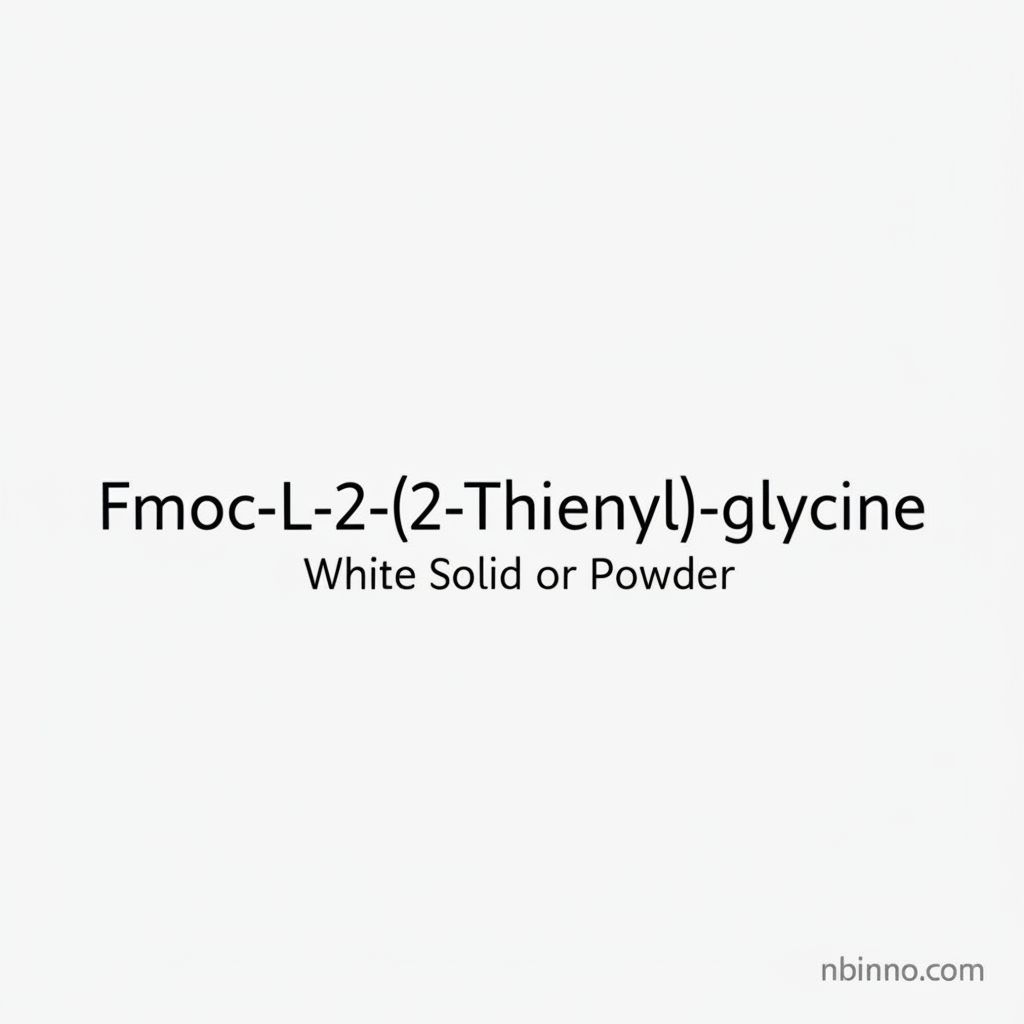Fmoc-L-2-(2-Thienyl)-glycine: A Key Building Block for Advanced Peptide Synthesis
Unlock the potential of advanced peptide synthesis with this specialized unnatural amino acid.
Get a Quote & SampleProduct Core Value

Fmoc-L-2-(2-Thienyl)-glycine
Fmoc-L-2-(2-Thienyl)-glycine is a critical non-canonical amino acid derivative, indispensable for modern solid-phase peptide synthesis (SPPS). Its unique thienyl substituent offers distinct steric and electronic properties, enabling the creation of peptidomimetics with enhanced stability, selectivity, and bioavailability compared to traditional amino acids. This compound is vital for researchers aiming to develop novel therapeutic agents and explore complex peptide structures.
- Introduction of unique structural features: Leveraging unnatural amino acid peptide synthesis techniques, this building block introduces a thienyl group, modifying peptide conformation and interaction with biological targets.
- Enhanced peptide properties: The incorporation of this compound can lead to peptidomimetics with improved stability against enzymatic degradation, crucial for drug development.
- Facilitating Fmoc chemistry: It is compatible with Fmoc chemistry in solid-phase peptide synthesis, a widely adopted and efficient method for creating complex peptides.
- Broad application potential: Widely used in biotechnology research and the development of new drugs, this reagent is a cornerstone for advancing medicinal chemistry.
Advantages Provided by the Product
Improved Peptide Design
Utilizing advanced peptide synthesis reagents like Fmoc-L-2-(2-Thienyl)-glycine allows for precise control over peptide structure and function, opening avenues for novel drug discovery.
Enhanced Stability
By incorporating this unnatural amino acid, researchers can synthesize peptidomimetics with superior resistance to proteases, extending their in vivo half-life and efficacy.
Versatile Synthesis Tool
The Fmoc protecting group ensures compatibility with standard Fmoc chemistry protocols, making it a versatile tool for both academic research and industrial-scale peptide production.
Key Applications
Peptide Synthesis
As a fundamental component in solid-phase peptide synthesis (SPPS), it enables the precise construction of complex peptide chains.
Peptidomimetic Development
Crucial for creating peptidomimetics that mimic natural peptides but offer improved pharmacological properties.
Drug Discovery
Its unique structure aids in the design and synthesis of novel therapeutic agents for various diseases, supporting drug discovery efforts.
Biotechnology Research
A key reagent for researchers in biotechnology exploring the synthesis and application of non-canonical amino acids.
